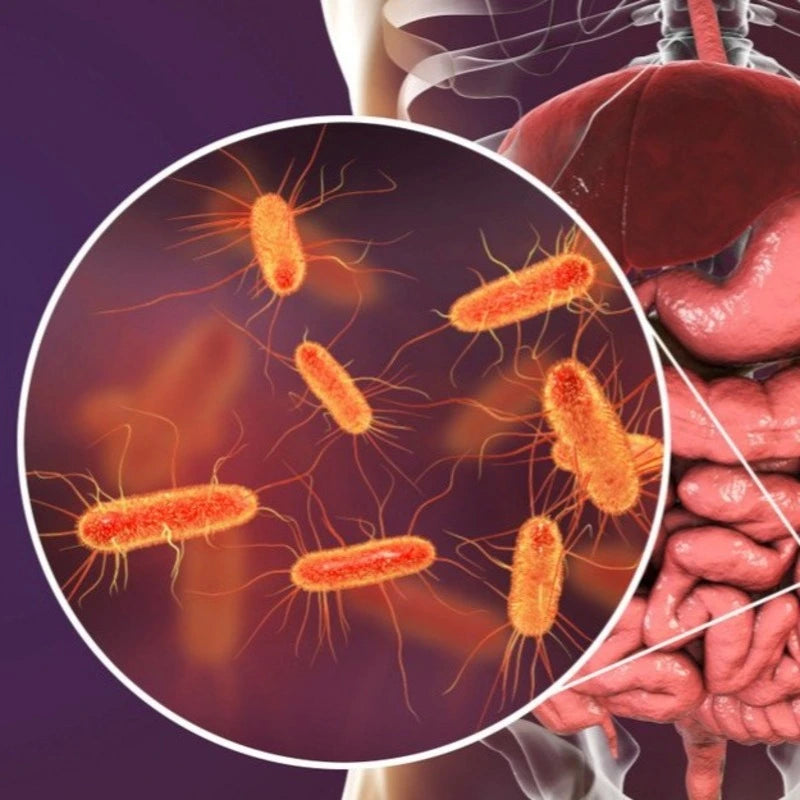Did you know that the Centers for Disease Control and Prevention (CDC) estimates that E. coli causes approximately 73,000 infections each year in the United States alone? These infections can lead to severe health complications if not recognized and treated promptly. It’s crucial to be aware of the early warning signs of E. coli infection, as early detection can significantly improve health outcomes and prevent complications. This article will guide you through recognizing symptoms, understanding prevention strategies, and knowing when to seek medical help.
Understanding Escherichia coli
Escherichia coli, commonly known as E. coli, is a type of bacteria that resides in the intestines of humans and animals. While most strains of E. coli are harmless, some pathogenic strains can cause serious infections. E. coli infections often stem from consuming contaminated food or water. Common sources include undercooked ground beef, unpasteurized milk, raw fruits, and vegetables contaminated with fecal matter. Recent outbreaks have underscored the relevance of this issue, reminding us that awareness and preventive measures are vital in safeguarding our health.
Early Warning Signs of E. coli Infection
Recognizing the early warning signs of an E. coli infection can help individuals seek timely treatment. Symptoms typically appear within 2 to 8 days after exposure and may include:
As the infection progresses, some individuals may develop more severe complications, such as hemolytic uremic syndrome (HUS), which can lead to kidney failure. Thus, recognizing these symptoms early is crucial for better health outcomes.
Food Safety Regulations and Practices
Understanding food safety regulations is essential in preventing E. coli outbreaks. Regulatory bodies establish guidelines to ensure food safety from farm to table, reducing the risk of contamination.
Maintaining proper hygiene and sanitation practices when handling food is vital. Always wash your hands before preparing meals and ensure that cooking surfaces are clean. Use separate cutting boards for raw meat and vegetables to avoid cross-contamination.
Implementing foodborne illness prevention strategies is also important. This includes cooking meat to safe temperatures, refrigerating leftovers promptly, and being cautious with food storage techniques. These practices can significantly minimize the risk of E. coli infections.
When and How to Seek Help
If you notice symptoms of E. coli infection, it's important to seek a consultation with a doctor. If symptoms persist or worsen, don't hesitate to reach out to a healthcare professional for guidance.
Certain situations necessitate an emergency room visit. Red flags include severe dehydration, high fever (over 101.5°F), or persistent vomiting. These symptoms could indicate a more serious condition that requires immediate medical attention.
Additionally, community health resources can provide valuable information and support for individuals seeking help or more information about E. coli infections. Local health departments often have resources available for those concerned about potential exposure.
Traveling Safety Tips
When traveling, it's crucial to adhere to specific traveling safety tips to protect against E. coli infections. Always prioritize food safety with a Milerd fruit washing machine while abroad by avoiding street food or unwashed fruits and vegetables. Stick to bottled or treated water, especially in areas where water quality is questionable.
Before traveling, it's wise to check for any recent E. coli outbreaks in your destination. Staying informed can help you make safe choices during your trip, reducing the risk of infection.
Conclusion
In summary, recognizing the early symptoms of E. coli infection and understanding prevention strategies are vital in safeguarding your health. By being proactive and informed about food safety practices, you can significantly reduce your risk of infection.
We encourage you to educate yourself and your family about foodborne illness prevention and seek help promptly if symptoms arise. Staying vigilant can help ensure a healthier home environment for everyone.



Lasă un comentariu
Acest site este protejat de hCaptcha și hCaptcha. Se aplică Politica de confidențialitate și Condițiile de furnizare a serviciului.